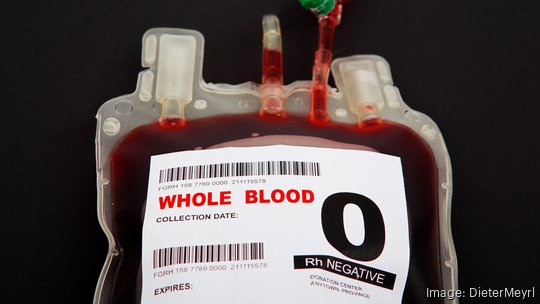
A startup with ties to North Carolina State University and UNC-Chapel Hill is developing technology to address problems around uncontrolled bleeding.
SelSym Biotech recently published a paper showing that its synthetic platelet technology works in a preclinical study involving large animals, and now it aims to advance the technology to humans.
The startup's early efforts have been supported by about $3 million in grant funding from various agencies, with a $1 million grant pending. To further advance the technology, SelSym recently launched a seed round to raise $5 million. The company plans to follow this raise with a $20 million Series A round.
Company co-founder Ashley Brown began working on the initial concept for the technology more than 10 years ago while a post-doc at Georgia Institute of Technology. In 2015, Brown started an independent lab at the Joint Department of Biomedical Engineering at N.C. State and UNC-Chapel Hill and continued developing the synthetic platelets.
The idea behind the technology came from trying to address the problems around the limitations of existing platelets, the primary blood cell type that contributes to clotting. But platelets have a short shelf life and are limited in supply. The American Red Cross in January said it was facing an emergency blood shortage.
"We started out with this problem because bleeding is a big issue," Brown said.
The idea was to come up with a solution that is not reliant on blood donors, has a longer shelf life and can be mass produced, Brown said. The technology also needed to be easily transportable so that it can be taken into remote locations, including rural and military settings.
"With those design criteria in mind, we developed a concept of a synthetic platelet," Brown said.
The synthetic platelets are made of hydrogel nanoparticles coated with antibody fragments that interact with the protein fibrin, which is a key component of blood clot formation. Brown said the technology is injectable and is being developed to treat bleeding anywhere in the body.
SelSym was formed in 2019 to carry the technology forward. The company recently completed preclinical efficacy testing and published a paper showing that the technology worked in large animal models. The startup is next focused on scaling up manufacturing operations and completing a series of safety studies before filing an application with the U.S. Food and Drug Administration to begin clinical trials.
The company has three full-time employees, including co-founder and CEO Seema Nandi. Brown said SelSym also has a handful of clinical and business advisors.
Brown said the technology has broad applicability, and could be useful in any situation where bleeding is a problem. This includes surgical-associated bleeding, trauma settings, rural health care and military medicine.
SelSym is focused on developing the synthetic platelets to stop bleeding, but the technology could have additional uses. Brown said her lab is looking at how the technology could be used in healing wounds as well. The lab has shown in mouse models how the particles, when applied to certain types of wounds and injuries, can enhance healing outcomes.